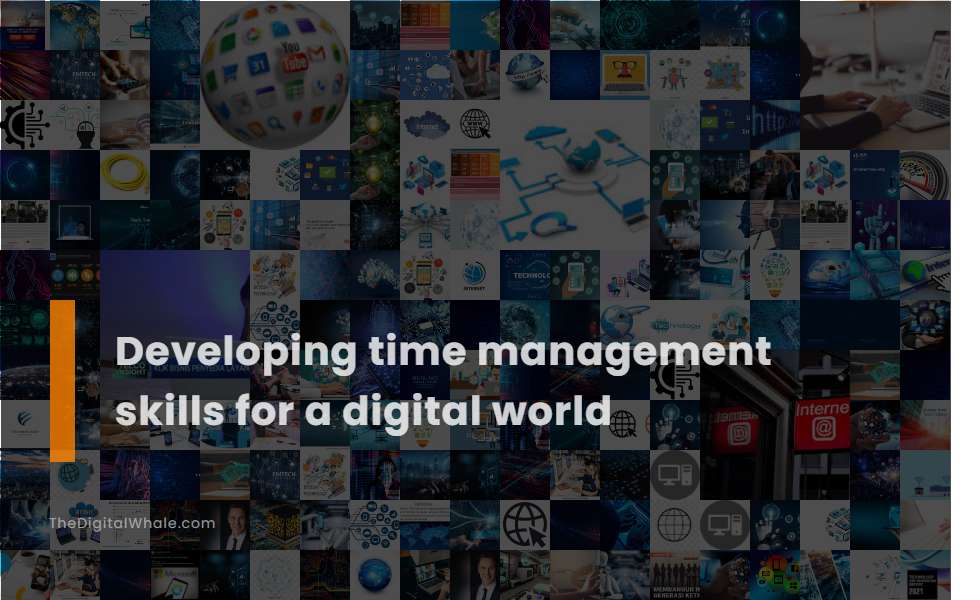Developing Time Management Skills for A Digital World
What is a good way for students to track their time in order to manage it effectively? How do I make sure that my time is well spent? Let's find out more about Developing Time Management Skills for A Digital World.

Prioritization: Assessing tasks based on urgency and importance to focus on what truly matters.
Prioritization involves assessing tasks based on urgency and importance, using tools like the Eisenhower Box or Kanban to distinguish between tasks that are urgent, important, both, or neither. Focusing on what truly matters can reduce overwhelm and enhance productivity. In the digital age, effective time management has become a key skill, and you can explore more about it on the Doodle website. By mastering these techniques, individuals can streamline their workflow and achieve a better work-life balance.
Goal Setting: Setting clear, achievable, and SMART (Specific, Measurable, Achievable, Relevant, Time-based) goals.
Setting clear, achievable, and SMART (Specific, Measurable, Achievable, Relevant, Time-based) goals is crucial for effective time management in the digital age. This involves defining specific objectives, tracking measurable progress, ensuring the goals are attainable with available resources, aligning them with relevant priorities, and setting realistic deadlines. For further insight into setting such goals, you can explore more on Indeed's tips for SMART Goals.
Organization: Maintaining an up-to-date calendar, tidy environment, and detailed notes to stay organized.
Maintaining organization involves keeping an up-to-date calendar, a tidy environment, and taking detailed notes to ensure a clear picture of tasks and deadlines, helping to stay focused and productive. For more insights on improving these practices, the Indeed Career Advice on Time Management Skills offers valuable guidance. By integrating such strategies, individuals can enhance their efficiency and achieve their goals more effectively.
Delegation: Assigning tasks to others or automating repetitive tasks to free up time for critical thinking.
In the digital age, mastering delegation involves assigning tasks to others or utilizing technology to automate repetitive tasks. This approach, which includes leveraging automation software, not only liberates time for critical thinking but also enhances strategic focus. By streamlining processes and reducing errors, automation boosts productivity, allowing employees to concentrate on more strategic and value-added activities. Furthermore, delegation allows for the responsible assignment of tasks based on skill and experience, effectively "buying" time through various services that save time, ultimately enabling individuals to dedicate their efforts to tasks that truly require their expertise.
Time Tracking: Using apps to understand where time is spent and identify productivity patterns.
Using apps like Clockify, you can track the time spent on various activities, categorize tasks by project, and analyze productivity patterns to identify areas for improvement, helping you understand where your time is spent and optimize your workflow. Tools such as TimeCamp, Timely, and Hubstaff allow you to track time automatically, create automated timesheets, and monitor productivity, providing detailed reports and insights into how time is allocated across different tasks and projects. For a reliable productivity tracker, consider visiting the Clockify website to learn more about optimizing your workflow effectively.
Related:
What are the benefits of implementing IoT in the workplace? What are the effects of the internet of things on the workplace? Let's find out more about The Internet of Things and Its Effect On the Workplace.
Automation: Leveraging tools like Zapier to automate workflows and reduce manual tasks.
Leveraging tools like Zapier allows you to automate repetitive tasks and workflows, integrating over 7,000 apps to reduce manual tasks, enhance productivity, and streamline processes such as data collection, Content Creation, and team collaboration.
Stress Management: Incorporating breaks and positive stress handling techniques to stay motivated.
Incorporating stress management into time management involves taking intentional breaks, rewarding yourself for accomplishments, and maintaining a healthy work-life balance to stay motivated and manage stress positively. Effective stress management in the digital age includes developing self-discipline, using motivational methods, and utilizing tools like the Pomodoro Technique to avoid procrastination and maintain motivation.
Problem-Solving: Developing skills to overcome challenges and keep projects on schedule.
Developing problem-solving skills is crucial for effective time management, as it helps you overcome challenges and keep projects moving forward and on schedule, ensuring that you can adapt to unexpected obstacles and maintain your productivity. For more insights into enhancing these skills and boosting your professional growth, visit Time Management Skills on Indeed's website.
Communication: Clearly communicating plans and goals to supervisors and colleagues.
Developing strong communication skills is crucial for effective time management, as it allows you to clearly communicate your plans and goals to supervisors and colleagues, ask questions when necessary, and report challenges in a timely manner to keep everyone on track. For more insights into enhancing your time management skills, visit the comprehensive guide on Indeed Career Advice, where you can find valuable tips and strategies to boost your productivity.
Technology Utilization: Using digital tools such as project management software, calendar apps, and distraction blockers to optimize time management.
Effective time management in the digital age involves utilizing digital tools such as project management software like Trello and Asana, calendar apps, and distraction blockers such as Forest to prioritize tasks, track time, and automate repetitive processes. This approach enhances productivity and reduces stress, allowing individuals to navigate their busy schedules more effectively. Implementing technology such as digital planners, project management tools, and time trackers aids in organizing tasks, delegating responsibilities, and minimizing distractions. This not only fosters a more efficient time management process but also leads to increased productivity. For more insights on these essential skills, you can explore the in-depth resource on Time Management: A Key Skill for the Digital Age.
Related:
Is the demand for remote workers due to economic recession or changing technology? What is the rise of digital nomads - Emissary.ai? Let's find out more about The Rise of Digital Nomads and Their Impact On the Workplace.
